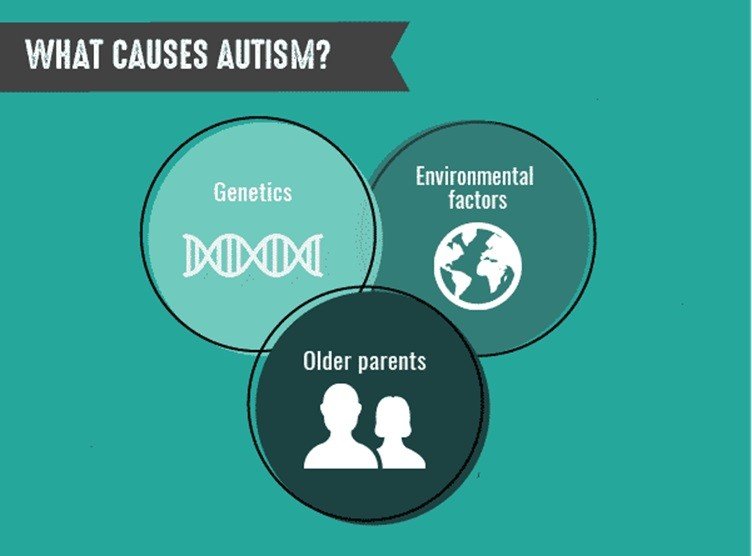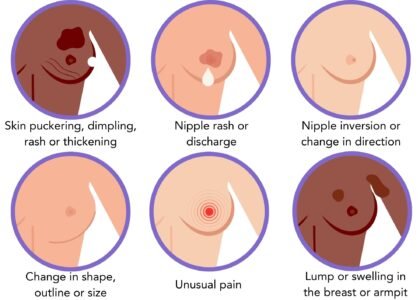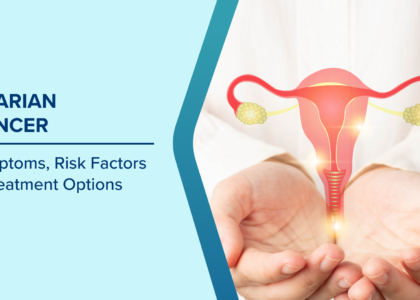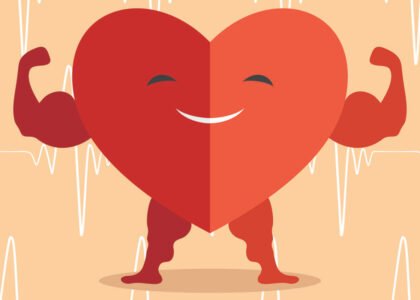
Q1)What is Autism? Why it is called Autism spectrum disorder?
- Autism spectrum disorder (ASD) refers to a range of conditions that start early in life and can affect how kids communicate and interact with others.
- Children with autism have differences in the way their brains develop and understand information, which in turn affects how they function at home, in school, and in the community.
- Every person with autism is different, and there is broad range of severity of autism symptoms. For this reason, autism is described as a “spectrum.”
- Some autistic kids have learning problems, while others do well in school. Some kids have trouble speaking but others have good speech and language skills.
Q2) What Are the Signs & Symptoms of Autism Spectrum Disorder?

- No two children with autism have the same signs and symptoms. Some have mild signs that cause only a few problems while others have severe symptoms that interfere with everyday tasks.
- Autistic children often have problems with body language, eye contact, and their senses — like being overly sensitive to sounds or touch, or not knowing when they feel hungry or sick.
- They may have trouble with social interactions and building and maintaining relationships. Kids may have intense and unusual interests and a need to keep things the same, like meals or daily routines.
- In toddlers, parents might notice:
1. poor eye contact
2. a child not responding to their name
3. delayed speech
4. using only a few gestures (waving, clapping, pointing)
5. not sharing enjoyment or interests with others
6. unusual ways of moving the hands, fingers, or whole body
7. being very focused on or attached to unusual objects
8. little to no imitating of others or pretending
- Rituals such as repeating things over and over or lining up objects
- Older autistic children might also have problems with pretend play and forming friendships.
Q3) What Causes Autism?

The exact cause of autism is not known. It’s likely that a combination of different things leads to changes in the way the brain develops before a baby is born. For some people, there might be a link to a genetic difference.
Q4)How Is Autism Spectrum Disorder Diagnosed?
- Doctors should look for signs and symptoms of autism at every checkup, ask about any concerns parents have, and do screening tests at the 18-month and 2-year visits.
- It is especially done with children who has speech and language delay.
- If any results suggest that a child has ASD, doctors will recommend a complete evaluation. This usually involves a team of experts that may include:
1. medical doctors who treat developmental disorders (problems with language, behavior, learning, or the body that happen as kids grow)
2. psychologists
3. occupational therapists
4. speech therapists
The team observes and evaluates kids to understand their language/communication, thinking, emotions, development, physical health, social skills, and self-help skills (like dressing and eating). The experts will also ask parents if they have any concerns about their child’s birth, growth, development, behavior, and family history.
Q5) How Is Autism Treated?

- No cure exists for autism spectrum disorder, and there is no one-size-fits-all treatment.
- The goal of treatment is to maximize your child’s ability to function by reducing autism spectrum disorder symptoms and supporting development and learning. Early intervention during the preschool years can help your child learn critical social, communication, functional and behavioral skills.
Treatment options may include:
- Behavior and communication therapies- Many programs address the range of social, language and behavioral difficulties associated with autism spectrum disorder.
- Educational therapies- Children with autism spectrum disorder often respond well to highly structured educational programs. Preschool children who receive intensive, individualized behavioral interventions often show good progress.
- Family therapies- Parents and other family members can learn how to play and interact with their children in ways that promote social interaction skills, manage problem behaviors, and teach daily living skills and communication.
- Medications- No medication can improve the core signs of autism spectrum disorder.
Book Your Appointment Today!
For expert autism care at Sanior Hospitals with Dr. Divya Pandey, a trusted specialist in autism diagnosis and therapy. With a compassionate approach and years of expertise, Dr. Pandey provides personalized treatment plans to support individuals on the autism spectrum. Early intervention and the right guidance can make a significant difference in development and daily life. Don’t wait—schedule a consultation now to take the first step toward comprehensive care and a brighter future. Contact Sanior Hospitals today!
Call us 7390 000 999 or for more details visit our website https://saniorhospitals.com/ and visit our hospital: link
Visit our Instagram Page https://www.instagram.com/saniorhospitalsofficial/
Check out our other posts
How Emotional Health and Stress Contribute to Heart Blockage












